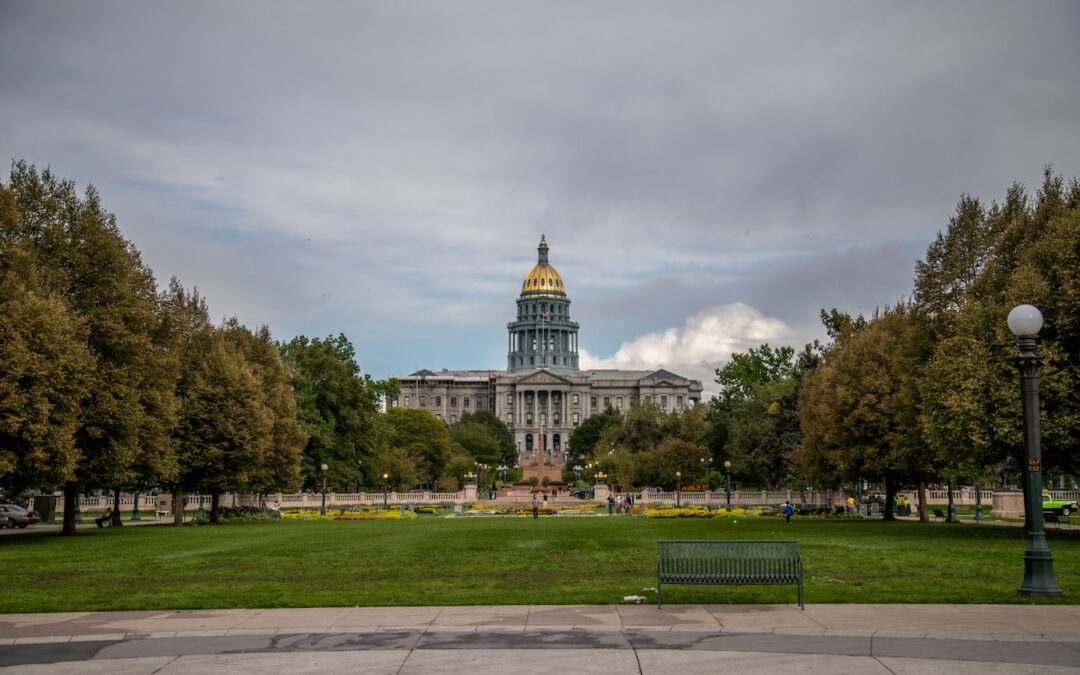On March 1, our Policy Director, Molly, spoke at the Colorado Legislature in support of HB 23-1202, the Overdose Prevention Center Authorization bill, when it was in the House Committee on Public & Behavioral Health & Human Services. This bill would permit individual municipalities in Colorado to authorize the establishment of life-saving overdose prevention centers. A few days ago, the bill passed out of the full House and is on to the Senate. We want to take some time to share with you why we support this bill and what overdose prevention centers have to do with transportation and human dignity in our community.
Overdose prevention centers (OPCs) are legally-sanctioned spaces that allow people who use drugs to do so safely. In the context of a wildly unpredictable and unregulated street drug supply, OPCs simply—and importantly—keep people alive. You can read more about OPCs here.
OPCs came onto our radar as an organization in late 2021 when RTD and the City and County of Denver were ramping up enforcement at Denver Union Station in response to an increased number of people publicly using drugs there. At that time, we called on decision makers to lead with compassion and dignity and to work to address root causes of issues folks were experiencing. During that time, Molly got to know Lisa Raville, the Executive Director of the Harm Reduction Action Center.
Lisa shared with Molly something that continues to stick with her today—that members of our community were using drugs at Denver Union Station, one of Denver’s only public-ish indoor spaces, because they didn’t want to overdose and die alone.
At DSP we envision an equitable and vibrant Denver where human dignity is the guiding principle for our transportation system and neighborhoods, with living, public spaces that allow everyone to thrive and connect to what matters most to them. That includes children, visitors, and residents—and people who use drugs, who are still people and who still deserve safety and a vibrant community. We support HB 23-1202 because we believe that giving communities, like Denver, the ability to authorize OPCs is a key part of creating a world founded in human dignity.
We recognize that public drug use has deterred some from using public transit recently. But, as Lisa Raville notes, public drug use happens because people don’t have anywhere else to use where they can be around others who could help in the case of an overdose, or because they don’t have anywhere else to go at all. At DSP we believe that enforcement, fear, and distrust of people who aren’t getting their physical and mental needs met is not the answer to addressing this issue. OPCs and other harm reduction strategies can help meet people’s needs by giving them spaces to be safe and be treated as humans. OPCs are effective in reducing public drug use, preventing overdose deaths, and connecting folks with services and resources they need, including health care, counseling, and referrals to services.
Just like we believe that no one should be killed in preventable traffic crashes on our streets, we also believe that no one should die a preventable death from an overdose. Just like we know the data-driven systemic changes that need to happen in our transportation system to prevent people from being killed, we know that OPCs are proven to minimize preventable overdose deaths. No one should die from a preventable death in our community.
Some might say we need to “stay in our lane” on an issue like this, but supporting this bill is an obvious position for us. There are many issues we’re faced with as a community right now and transportation intersects with most, if not all, of them in one way or another. We support allowing Denver and other communities to establish OPCs because these sites reduce harm to people and help all of us get our needs met by reducing public drug use and preventing overdose deaths. Similarly, improved infrastructure and increased access to transit, walking, and biking also reduce harm to people whether in terms of reducing traffic fatalities, decreasing air pollution, or increasing a sense of community. We support community partners who lead in a variety of issue areas and will continue to learn and engage on issues that are connected to transportation and human dignity in our community. In this case, we are grateful for groups like Harm Reduction Action Center and the Colorado Drug Policy Coalition who have been leading on this work for years, as well as the bill sponsors. We hope you’ll join us in expressing your support for this bill.

